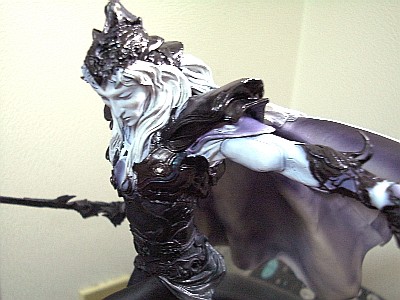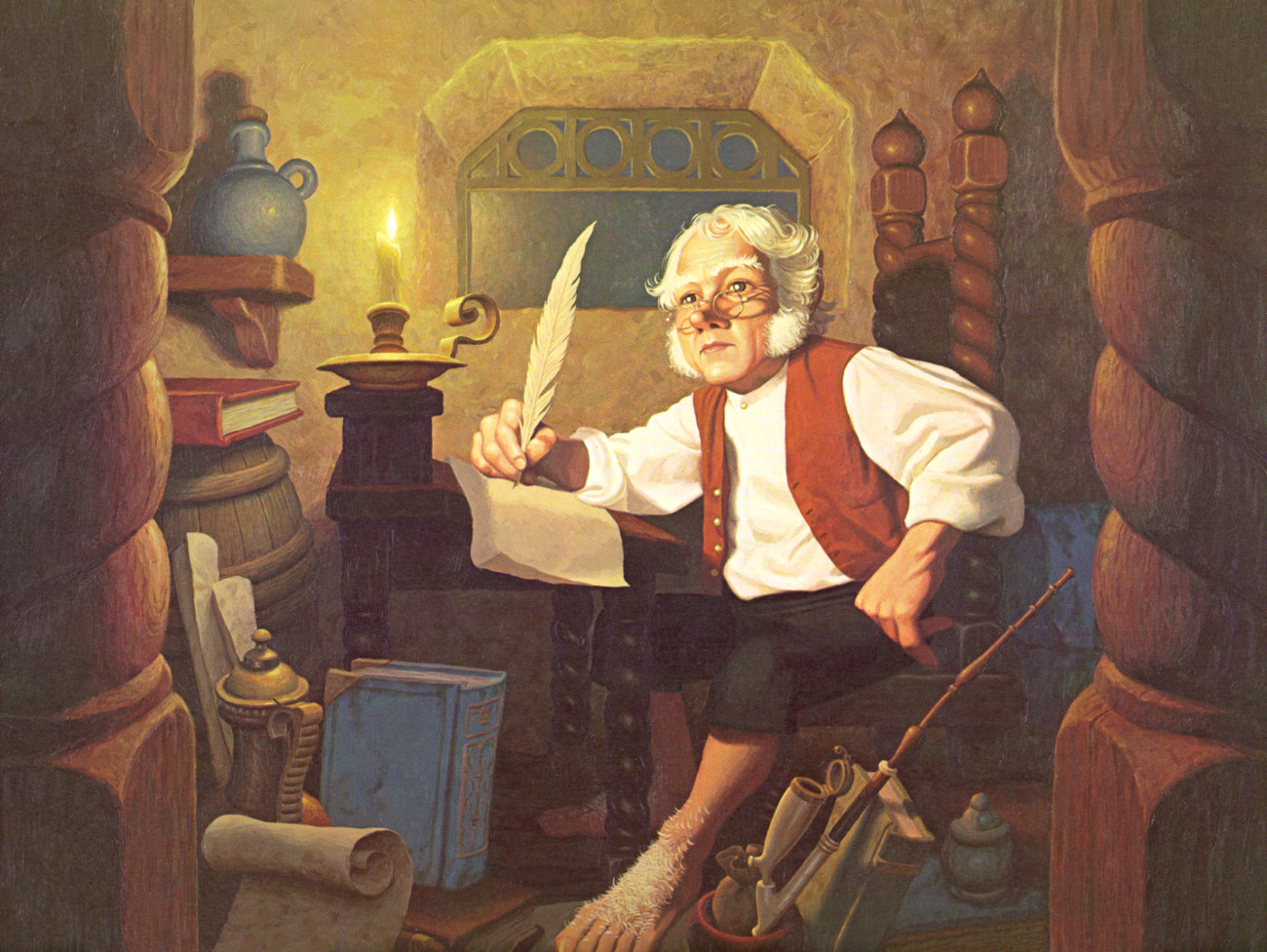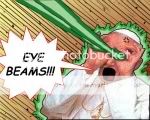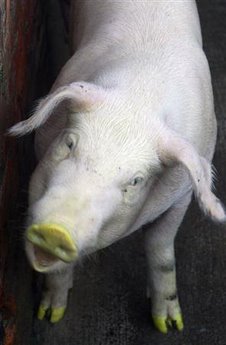The Tinker
[D&D Core Class]
The Tinker
Blending engineering skill, knowledge of physics, and magical aptitude, the tinker serves as the master mechanic and inventor of his world. The tinker is renowned for his mechanical prowess, knack for invention and construction, and his uncanny ability to repair damaged objects. Armed with his toolbox, the tinker can disable the mightiest golem, bypass almost every magical or mundane lock, and build strange gadgets for every situation.
Tinker is a profession often pursued by humans, dwarves, and, especially, gnomes.

Tinker Prestige Classes: professor.
Adaptation: Tinker is deisgned to fill the role of mechanic and inventor in a magical world.
Game Rule Information
Tinkers (Tnk) have the following game statistics.
Abilities: ?.
Base Attack Bonus: Average (as a bard).
Hit Die: d6.
Saves: Good Will / Poor Fortitude and Reflex.
Class Skills: The tinker's class skills are Appraise (Int), Concentration (Con), Craft (Int), Disable Device (Int), Knowledge (Arcana) (Int), Knowledge (Architecture and Engineering) (Int), Open Lock (Dex), Profession (Wis), Search (Int), Sleight of Hand (Dex), Spellcraft (Int), Spot (Wis), Use Magic Device (Cha), and Use Rope (Dex). Skill Points at Each Level: 6 + Intelligence modifier (x4 at 1st level).
Alignment: Any nonchaotic. Tinkers are, first and foremost, students of the laws and physics of mechanics and always begin their careers with a nonchaotic alignment. However, it is not uncommon for tinkers to later abandon this mindset for reasons as varied artistic inspiration, theoretical rebellion, and simple madness. Beginning at 5th level, a tinker can freely change to a chaotic alignment without affecting his ability to progress as a tinker, although any professional reputation he has is likely to suffer. A tinker who changes to a chaotic alignment before 5th level cannot gain additional levels in tinker until his alignment returns to nonchaotic.
Starting Age: As a wizard.
Starting Gold: 6d4 x 10gp.
Favored Class: Tinker is favored class for half-elves and humans, and an additional or alternate favored class for dwarves and gnomes, at the DM's discretion.
Class Features
All of the following are class features of the tinker.
Weapons and Armor Proficiency: Tinkers are proficient with the club, crossbow (hand, heavy, and light), handaxe, light hammer, light pick, sap, short sword, sling, and warhammer. They are proficient with light armor but not with shields.
Applied Mechanics
The tinker can slip off shackles and ropes with uncanny ease. He receives a +3 to all Escape Artist checks when the restraints are purely mundane or mechanical (ropes, chains, etc.), to Sleight of Hand checks when performing a mechanical manipulation (operating a device, typing, etc.), and to Use Magic Device checks on gadgets (see Craft Gadget feat).
Armored Casting
He can work his magic unfettered by armor. When casting tinker spells (and only tinker spells) in armor, the tinker ignores arcane spell failure chance equal to 10% + his tinker level.
Repair
He can fix anything. Armed with a toolkit, the tinker can mend broken or damaged objects. A number of times per day equal to his tinker level, he can either repair structural damage points equal to 1d6 + his Intelligence modifier or duplicate the effects of mending upon an item. Repairing takes a number of minutes per application equal to 1d6 x 1 to 10, depending on the severity of the damage or the complexity of the object (as determined by the DM); repairing a simple chair or table may require only 1d6+1 minutes, while repairing a unique and complex magical machine might require 1d6+10 minutes. The tinker can also attempt simple repairs normally using the Craft skill. Repair is a spell-like ability.
Tinker Magic
The tinker casts arcane spells as a bard, but using his Intelligence score to determine bonus spells, maximum spell level, and Difficulty Class. He chooses his Spells Known from the Tinker Magic spell list below:
Spell Notes: All tinker spells have either a Material or Somatic component. When casting any spell with a Divine Focus, the tinker may substitute a small hand tool; such spells have a minimum casting time of 1 full round. At 4th level and every two levels thereafter, the tinker can exchange any tinker Spell Known for any spell of equal or lower level on the Tinker Magic spell list.
Engineer's Eye [2th/4th/7th/11th/16th level]
The canny eye of the tinker can notice and identify in objects that which goes unnoticed by others.
Stonecunning: At 2nd level, the tinker can recognize largely imperceptible irregularities in construction and design. He acquires the Stonecunning ability of a dwarf; if he is a dwarf, his Stonecunning bonus increases to +4.
Trapfinding: At 4th level, the tinker searches for traps with the Trapfinding skills of a rogue; if he has levels in rogue or any class granting the Trapfinding class feature, he receives a +2 bonus to such checks.
Secret Doors: At 7th level, he spots secret and hidden doors as an elf; if he is an elf, the proximity for detection increases to 10 feet.
Object Identification: At 11th level, the tinker can cast identify once per day as a spell-like ability requiring one hour of study; if he has the Item Creation feat corresponding to the targeted object – such as a tinker with Craft Wand attempting to identify a wand – it takes only 10 minutes to identify the object.
Object Analysis: At 16th level, he can cast analyze dweomer on an object once per day as a spell-like ability.
Tinker Feat [3rd/6th/9th/12th/15th/18th level]
At 3rd level and every three levels thereafter, the tinker receives a bonus feat, chosen from the following list: Advanced Augmentation, Animate Chain, Arcane Strike, Armor Proficiency (Heavy), Armor Proficiency (Medium), Armored Casting, Armored Mobility, Blacksmithing, Boltslinger, Chain Familiarity, Chain Finesse, Craft Companion, Craft Construct, Craft Gadget, Craft Magic Arms and Armor, Craft Rod, Craft Staff, Craft Wand, Craft Wondrous Item, Craftsmanship, Deft Hands, Dodge Traps, Earthcraft, Engineering Savant, Ensorcel Armor, Ensorcel Missile, Ensorcel Weapon, Epic Repair, Exotic Weapon Proficiency (spiked chain or any crossbow), Extra Amulet, Extra Bracers, Extra Ring, Extra Tinker Ability, Forge Ring, Gadget Creature, Golemsmith, Grease Monkey, Greater Ensorcel Armor, Greater Ensorcel Missile, Greater Ensorcel Weapon, Greater Skill Focus (Any class skill), Gremlin's Touch, Identify Device, Improved Armored Mobility, Improved Reload, Improved Sunder, Item Familiar, Magical Artisan, Major Augmentation, Mechanically Inclined, Mercantile Background, Minor Augmentation, Nimble Fingers, Rapid Reload, Shield Proficiency, Siege Engineer, Skill Focus (Any class skill), Tower Shield Proficiency, and Trapper. The tinker must otherwise qualify for any feat chosen.
When taken as a tinker feat, Craft Wondrous Item allows the tinker to also craft any magical oil as if he has the Brew Potion feat. The tinker can gain bonus proficiency with any specific weapon or armor that he crafts with the Craft Magic Arms and Armor feat by paying an additional 50% of the normal experience point cost of the item; he can have a maximum number of such bonus proficiencies equal to his Intelligence modifier.
Deconstruction [5th/10th/15th/20th level]
His knowledge of mechanics and magic grants the tinker several advantages against Constructs. At 5th level and every five levels thereafter, he gains a +1 competence bonus against Constructs on Bluff, Listen, and Spot checks; to attack and damage rolls; when overcoming a Construct’s spell resistance; and to saves against any Construct attack that normally allows a save. In addition, upon a successful melee or touch attack, he can attempt a Disable Device check (DC 10 + Construct’s Hit Die) to cause the Construct to malfunction and behave as if stunned for 1 round if it fails a Fortitude save (DC tinker level + ranks in Disable Device).
Artificial Sentience [20th level]
The tinker makes a breakthrough: He can now bestow humanlike sentience upon his creations. This spell-like ability is similar to casting awaken but only affects Constructs, arms, armor, and other objects the tinker has personally crafted. Semi-sentient animated objects, such as golems, gain an Intelligence of 3d6 and +1d3 Charisma but lose their immunity to charms and morale effects. Inanimate objects, such as gadgets, magic swords, or statues, gain base 3d6 Intelligence, Wisdom, and Charisma scores, and are affected by permanent animate objects. The resulting being recognizes the tinker as its creator, and is thereafter a loyal servant unless mistreated or abused. The creature speaks and understands one language the tinker knows.
Granting artificial sentience costs the tinker 1,000 XP plus a number of gold pieces and additional XP equal to 25% of the item’s original material and XP construction costs, if any.
Epic Tinker: The epic-level tinker continues his Hit Die, skill point, Repair, and Deconstruction progressions. In addition, he receives bonus epic feats at 21st level and every three levels thereafter (21st, 24th, 27th, 30th, etc.).
Board Link: To feedback on this class posted on the Wizards of the Coast message boards. Originally posted in 2002.
Blending engineering skill, knowledge of physics, and magical aptitude, the tinker serves as the master mechanic and inventor of his world. The tinker is renowned for his mechanical prowess, knack for invention and construction, and his uncanny ability to repair damaged objects. Armed with his toolbox, the tinker can disable the mightiest golem, bypass almost every magical or mundane lock, and build strange gadgets for every situation.
Tinker is a profession often pursued by humans, dwarves, and, especially, gnomes.

Tinker Prestige Classes: professor.
Adaptation: Tinker is deisgned to fill the role of mechanic and inventor in a magical world.
Game Rule Information
Tinkers (Tnk) have the following game statistics.
Abilities: ?.
Base Attack Bonus: Average (as a bard).
Hit Die: d6.
Saves: Good Will / Poor Fortitude and Reflex.
Class Skills: The tinker's class skills are Appraise (Int), Concentration (Con), Craft (Int), Disable Device (Int), Knowledge (Arcana) (Int), Knowledge (Architecture and Engineering) (Int), Open Lock (Dex), Profession (Wis), Search (Int), Sleight of Hand (Dex), Spellcraft (Int), Spot (Wis), Use Magic Device (Cha), and Use Rope (Dex). Skill Points at Each Level: 6 + Intelligence modifier (x4 at 1st level).
Alignment: Any nonchaotic. Tinkers are, first and foremost, students of the laws and physics of mechanics and always begin their careers with a nonchaotic alignment. However, it is not uncommon for tinkers to later abandon this mindset for reasons as varied artistic inspiration, theoretical rebellion, and simple madness. Beginning at 5th level, a tinker can freely change to a chaotic alignment without affecting his ability to progress as a tinker, although any professional reputation he has is likely to suffer. A tinker who changes to a chaotic alignment before 5th level cannot gain additional levels in tinker until his alignment returns to nonchaotic.
Starting Age: As a wizard.
Starting Gold: 6d4 x 10gp.
Favored Class: Tinker is favored class for half-elves and humans, and an additional or alternate favored class for dwarves and gnomes, at the DM's discretion.
Class Features
All of the following are class features of the tinker.
Weapons and Armor Proficiency: Tinkers are proficient with the club, crossbow (hand, heavy, and light), handaxe, light hammer, light pick, sap, short sword, sling, and warhammer. They are proficient with light armor but not with shields.
- Applied Mechanics, Armored Casting, Repair, Tinker Magic
- Engineer's Eye [Stonecunning]
- Tinker Feat
- Engineer's Eye [Trapfinding]
- Deconstruction [+1]
- Tinker Feat
- Engineer's Eye [Secret Doors]
- Tinker Feat
- Deconstruction [+2]
- Engineer's Eye [Object Identification]
- Tinker Feat
- Deconstruction [+3], Tinker Feat
- Engineer's Eye [Object Analysis]
- Tinker Feat
- Artificial Sentience, Deconstruction [+4]
Applied Mechanics
The tinker can slip off shackles and ropes with uncanny ease. He receives a +3 to all Escape Artist checks when the restraints are purely mundane or mechanical (ropes, chains, etc.), to Sleight of Hand checks when performing a mechanical manipulation (operating a device, typing, etc.), and to Use Magic Device checks on gadgets (see Craft Gadget feat).
Armored Casting
He can work his magic unfettered by armor. When casting tinker spells (and only tinker spells) in armor, the tinker ignores arcane spell failure chance equal to 10% + his tinker level.
Repair
He can fix anything. Armed with a toolkit, the tinker can mend broken or damaged objects. A number of times per day equal to his tinker level, he can either repair structural damage points equal to 1d6 + his Intelligence modifier or duplicate the effects of mending upon an item. Repairing takes a number of minutes per application equal to 1d6 x 1 to 10, depending on the severity of the damage or the complexity of the object (as determined by the DM); repairing a simple chair or table may require only 1d6+1 minutes, while repairing a unique and complex magical machine might require 1d6+10 minutes. The tinker can also attempt simple repairs normally using the Craft skill. Repair is a spell-like ability.
Tinker Magic
The tinker casts arcane spells as a bard, but using his Intelligence score to determine bonus spells, maximum spell level, and Difficulty Class. He chooses his Spells Known from the Tinker Magic spell list below:
- 0 Level: arcane mark, big stick, comprehend writing, detect magic, gothic, internal sundial, jolt, light, mending, open/close, read magic, summon tool
- 1st Level: alarm, animate rope, arrowfire, detect secret doors, detect snares and pits, erase, grease, hold portal, identify, knock, Leomund's trap, lesser fox's cunning, little dipper, magic mouth, magic stone, magic weapon, make whole, Nystul's magic aura, obscure object, remember, shillelagh, shocking grasp, unseen servant, warp wood
- 2nd Level: align weapon, animate item, arcane lock, big dipper, chill metal, continual flame, create bows and arrows, find traps, fire trap, fox's cunning, glitterdust, greater shillelagh, heat metal, locate object, magic quiver, protection from arrows, rope trick, shatter, snare, soften earth and stone, spike growth, wood shape
- 3rd Level: corrosive arrow, dispel magic, flame arrow, greater magic weapon, illusory script, illusory wall, keen edge, Khordrah's chains, Leomund's secure shelter, magic vestment, minor creation, scrying, secret page, shrapnel, shrink item, stone shape, wall of knives
- 4th Level: cudgel, disrupting weapon, fabricate, greater erase, greater fox's cunning, ironwood, Leomund's secret chest, major creation, passwall, rusting grasp, spike stones, stone tell, wall of stone
- 5th Level: analyze dweomer, animate objects, black carriage, cone of sparks, greater cudgel, guards and wards, Mordenkainen's private sanctum, move earth, permanency, phase door, repel wood, spellstaff, stasis field, wall of iron, waves of destruction
- 6th Level: arrow of slaying, blade barrier, disintegrate, Drawmij's instant summons, forcecage, golem's endurance, Khordrah's prisoner, mass fox's cunning, maze, mechamorphosis, Mordenkainen's disjunction, Mordenkainen's magnificent mansion, polymorph object, refuge, repel metal and stone, Smukir's peculiar preserves, sympathetic vibration, teleport object, transmute metal to wood, wyrm's cunning
- 1st Level: alarm, animate rope, arrowfire, detect secret doors, detect snares and pits, erase, grease, hold portal, identify, knock, Leomund's trap, lesser fox's cunning, little dipper, magic mouth, magic stone, magic weapon, make whole, Nystul's magic aura, obscure object, remember, shillelagh, shocking grasp, unseen servant, warp wood
Spell Notes: All tinker spells have either a Material or Somatic component. When casting any spell with a Divine Focus, the tinker may substitute a small hand tool; such spells have a minimum casting time of 1 full round. At 4th level and every two levels thereafter, the tinker can exchange any tinker Spell Known for any spell of equal or lower level on the Tinker Magic spell list.
Engineer's Eye [2th/4th/7th/11th/16th level]
The canny eye of the tinker can notice and identify in objects that which goes unnoticed by others.
Stonecunning: At 2nd level, the tinker can recognize largely imperceptible irregularities in construction and design. He acquires the Stonecunning ability of a dwarf; if he is a dwarf, his Stonecunning bonus increases to +4.
Trapfinding: At 4th level, the tinker searches for traps with the Trapfinding skills of a rogue; if he has levels in rogue or any class granting the Trapfinding class feature, he receives a +2 bonus to such checks.
Secret Doors: At 7th level, he spots secret and hidden doors as an elf; if he is an elf, the proximity for detection increases to 10 feet.
Object Identification: At 11th level, the tinker can cast identify once per day as a spell-like ability requiring one hour of study; if he has the Item Creation feat corresponding to the targeted object – such as a tinker with Craft Wand attempting to identify a wand – it takes only 10 minutes to identify the object.
Object Analysis: At 16th level, he can cast analyze dweomer on an object once per day as a spell-like ability.
Tinker Feat [3rd/6th/9th/12th/15th/18th level]
At 3rd level and every three levels thereafter, the tinker receives a bonus feat, chosen from the following list: Advanced Augmentation, Animate Chain, Arcane Strike, Armor Proficiency (Heavy), Armor Proficiency (Medium), Armored Casting, Armored Mobility, Blacksmithing, Boltslinger, Chain Familiarity, Chain Finesse, Craft Companion, Craft Construct, Craft Gadget, Craft Magic Arms and Armor, Craft Rod, Craft Staff, Craft Wand, Craft Wondrous Item, Craftsmanship, Deft Hands, Dodge Traps, Earthcraft, Engineering Savant, Ensorcel Armor, Ensorcel Missile, Ensorcel Weapon, Epic Repair, Exotic Weapon Proficiency (spiked chain or any crossbow), Extra Amulet, Extra Bracers, Extra Ring, Extra Tinker Ability, Forge Ring, Gadget Creature, Golemsmith, Grease Monkey, Greater Ensorcel Armor, Greater Ensorcel Missile, Greater Ensorcel Weapon, Greater Skill Focus (Any class skill), Gremlin's Touch, Identify Device, Improved Armored Mobility, Improved Reload, Improved Sunder, Item Familiar, Magical Artisan, Major Augmentation, Mechanically Inclined, Mercantile Background, Minor Augmentation, Nimble Fingers, Rapid Reload, Shield Proficiency, Siege Engineer, Skill Focus (Any class skill), Tower Shield Proficiency, and Trapper. The tinker must otherwise qualify for any feat chosen.
When taken as a tinker feat, Craft Wondrous Item allows the tinker to also craft any magical oil as if he has the Brew Potion feat. The tinker can gain bonus proficiency with any specific weapon or armor that he crafts with the Craft Magic Arms and Armor feat by paying an additional 50% of the normal experience point cost of the item; he can have a maximum number of such bonus proficiencies equal to his Intelligence modifier.
Deconstruction [5th/10th/15th/20th level]
His knowledge of mechanics and magic grants the tinker several advantages against Constructs. At 5th level and every five levels thereafter, he gains a +1 competence bonus against Constructs on Bluff, Listen, and Spot checks; to attack and damage rolls; when overcoming a Construct’s spell resistance; and to saves against any Construct attack that normally allows a save. In addition, upon a successful melee or touch attack, he can attempt a Disable Device check (DC 10 + Construct’s Hit Die) to cause the Construct to malfunction and behave as if stunned for 1 round if it fails a Fortitude save (DC tinker level + ranks in Disable Device).
Artificial Sentience [20th level]
The tinker makes a breakthrough: He can now bestow humanlike sentience upon his creations. This spell-like ability is similar to casting awaken but only affects Constructs, arms, armor, and other objects the tinker has personally crafted. Semi-sentient animated objects, such as golems, gain an Intelligence of 3d6 and +1d3 Charisma but lose their immunity to charms and morale effects. Inanimate objects, such as gadgets, magic swords, or statues, gain base 3d6 Intelligence, Wisdom, and Charisma scores, and are affected by permanent animate objects. The resulting being recognizes the tinker as its creator, and is thereafter a loyal servant unless mistreated or abused. The creature speaks and understands one language the tinker knows.
Granting artificial sentience costs the tinker 1,000 XP plus a number of gold pieces and additional XP equal to 25% of the item’s original material and XP construction costs, if any.
Epic Tinker: The epic-level tinker continues his Hit Die, skill point, Repair, and Deconstruction progressions. In addition, he receives bonus epic feats at 21st level and every three levels thereafter (21st, 24th, 27th, 30th, etc.).
Board Link: To feedback on this class posted on the Wizards of the Coast message boards. Originally posted in 2002.







 what the Great Conjunction is. 'What's the Great Conjunction?'
what the Great Conjunction is. 'What's the Great Conjunction?' 




 A Is for Androids
A Is for Androids B Is for Boba
B Is for Boba C Is for Calvin
C Is for Calvin D Is for Dragons
D Is for Dragons E Is for Elric
E Is for Elric F Is for Futures
F Is for Futures G Is for Genie
G Is for Genie H Is for Hobbits
H Is for Hobbits I Is for Iceman
I Is for Iceman J Is for Jedi
J Is for Jedi K Is for Kraken
K Is for Kraken





































































0 Comments:
Post a Comment
<< Home